Genealogy
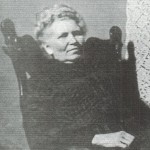 My Great Great Aunt Ida Spencer Brown Nass, married Andrew Alfred Brown on October 1, 1872. They had two sons, Elmer Ellsworth and Andrew Alfred. It is unknown what happened to Ida’s first husband, but she later married Sjur Johannesson Nass, who went by Samuel, and they had two daughters, Ellen and Ethel.
My Great Great Aunt Ida Spencer Brown Nass, married Andrew Alfred Brown on October 1, 1872. They had two sons, Elmer Ellsworth and Andrew Alfred. It is unknown what happened to Ida’s first husband, but she later married Sjur Johannesson Nass, who went by Samuel, and they had two daughters, Ellen and Ethel.
Ida and Andrew’s son Andrew Alfred, who usually went by A.A. Brown, married a woman names Emma Caroline Haessler. Their marriage was filled with love, and blessed with ten children, Gertrude Flora, Alwyn A, Emma Henrietta, John Henry “Johnie”, Bessie, Warren Winston, Elizabeth Ida, Edward Spencer, James Robert, and Fredrick Valden. While their lives were happy, they were not long. Emma passed away on October 31, 1918, leaving Andrew to raise their seven children…a difficult task with small families, but much harder for a man with seven children. Andrew was doing quite well with the task, even though his oldest daughter, Gertrude, who had most likely been a big help, was married on April 20, 1920, leaving him with one less helping hand around the house. Their son Alwyn had preceded his mother in death on June 10, 1918, as had Johnie on September 12, 1905 at 3 years of age, and Bessie on September 10, 1905 at 3 months of age.
On January 29, 1921, tragedy would again strike the family, when Andrew was killed in The Great Olympic Blowdown. The storm, which was one of the worst in Washington state 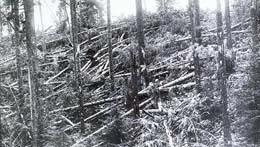 history, came in off the coast at around 8:00 am on January 29, bringing with it, hurricane force winds estimated at 125 to 150 mph. The Forest Service estimated the loss of timber at several billion board feet. The loss of life was one, Andrew A Brown, who was an engineer working at the Anderson-Middleton Lumber Mill in Aberdeen. He was killed instantly when a sudden gust blew down a smokestack pinning him against a broken steam pipe and scalding him to death.
history, came in off the coast at around 8:00 am on January 29, bringing with it, hurricane force winds estimated at 125 to 150 mph. The Forest Service estimated the loss of timber at several billion board feet. The loss of life was one, Andrew A Brown, who was an engineer working at the Anderson-Middleton Lumber Mill in Aberdeen. He was killed instantly when a sudden gust blew down a smokestack pinning him against a broken steam pipe and scalding him to death.
Once again, a grieving Gertrude, who had married Patrick Mint House, stepped in, taking the remaining six children into their home and raising them as their own. Emma was 21 years old by then, so I don’t know if she lived with her sister or not, but the rest of the children ranged in ages from 4 years to 14 years. The littlest ones would most likely not even remember their parents very clearly in the coming years. Their parents hadn’t shared memories of their childhood even with their eldest daughter, Gertrude, so the memories the younger children would have would only be what little bits and pieces she could tell them of her childhood years with their parents. I have to commend Gertrude and Patrick for their heroic and selfless act of taking in her siblings. I can only imagine how hard that must have been for them. In looking through the genealogy records, I can’t find any evidence of Gertrude and Patrick having any children of their own. I don’t know 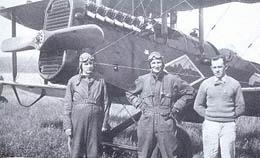 if that was because they were unable to have children or that they had a ready made family. Either way, I find that very sad, because I think they must have been wonderful, loving parents. I imagine that it was an enormous job to take on six children…especially when one is only 23 years old herself. Still, they were family and she loved them. She could not bear to have them go to an orphanage, so she and her husband did what they had to do, and raised her siblings in a happy, loving home…an act of kindness the children never forgot.
if that was because they were unable to have children or that they had a ready made family. Either way, I find that very sad, because I think they must have been wonderful, loving parents. I imagine that it was an enormous job to take on six children…especially when one is only 23 years old herself. Still, they were family and she loved them. She could not bear to have them go to an orphanage, so she and her husband did what they had to do, and raised her siblings in a happy, loving home…an act of kindness the children never forgot.
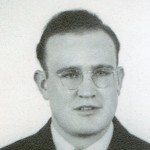
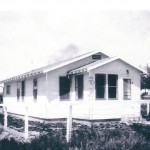 Uncle Bill always had some new iron in the fire. He has many interests and talents. Uncle Bill, who’s full name is William Malrose Spencer II, was named after his grandfather, William Malrose Spencer I. To Uncle Bill, the single most important accomplishment of his lifetime, is the incredible family history he has dedicated his life to documenting. Uncle Bill started the family history as a young boy of only 8 years. He never quit thinking about the family history after that, even after dementia clouded his ability to process the information he found like he used to do.
Uncle Bill always had some new iron in the fire. He has many interests and talents. Uncle Bill, who’s full name is William Malrose Spencer II, was named after his grandfather, William Malrose Spencer I. To Uncle Bill, the single most important accomplishment of his lifetime, is the incredible family history he has dedicated his life to documenting. Uncle Bill started the family history as a young boy of only 8 years. He never quit thinking about the family history after that, even after dementia clouded his ability to process the information he found like he used to do.
Recently, I came across another accomplishment of Uncle Bill’s…one I would never have expected. While looking at his Family History Journals, I found a picture of a house, and I wondered what significance this house might have to have found a place in the family history. Nevertheless, Uncle Bill clearly thought it belonged. The building of the house began in 1948, and continued to it’s completion in 1951. Why would a house take so long to build? The answer explains it quite well. My Uncle Bill, whose nickname is Willie, singlehandedly built the house. The only work he did not do was the wiring and plumbing. The concrete for the sidewalk and steps, was mixed in a 3 x 4 foot plank box, with a hoe. Having done a little concrete mixing with a hoe, I can attest to how difficult that is to get right, or maybe that’s just me…techy yes, builder…not so much. During that time, Uncle Bill was living in Casper, and wanted something to do in his spare time. Building a house seemed to fit the bill nicely. I know that is an odd hobby, but it was the one he chose.
Sometimes, people come into our lives in odd ways. One night while Uncle Bill was digging a trench from the bathroom to the sewer line, it was late and dark. He had a light cord out there, so he could see. Suddenly someone yelled, “What are you digging down there…a grave??” The voice came from a young man named Mark Knittle and Uncle Bill liked his sense of humor immediately. They became lifelong friends, and kept in contact for many years. So, what of the house that Willie built…well, it still stands today and it’s in very good shape. 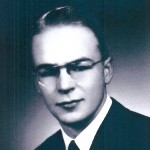
 Not much has changed about the house at 1228 S Jackson Street, other than the color of the paint. I tried to locate Mark Knittle, but the Mark Knittle who lives in Casper at this time, is apparently no relation. I found that rather sad, because I had hoped to tell a little more about their friendship. Today is my Uncle Bill’s 92nd birthday. He is doing quite well in most ways, and loves having visitors. Happy birthday Uncle Bill!! Have a great day!! We love you!!
Not much has changed about the house at 1228 S Jackson Street, other than the color of the paint. I tried to locate Mark Knittle, but the Mark Knittle who lives in Casper at this time, is apparently no relation. I found that rather sad, because I had hoped to tell a little more about their friendship. Today is my Uncle Bill’s 92nd birthday. He is doing quite well in most ways, and loves having visitors. Happy birthday Uncle Bill!! Have a great day!! We love you!!
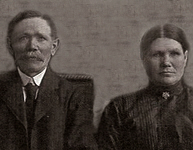 Every life and family has its ups and downs, and its major challenges. The way those challenges are handled tells you what kind of a family they really are. Sometimes, the losses, hardships, tragedies, or illnesses can break a family. They fall apart and they are unable to survive as a family. Even if that family survives, it is never the same again, but when a family is dedicated to each other, and wants the very best for each other, they will not only survive, but they will thrive. When a family is filled with love for each other, and they stubbornly refuse to give up, the truly miraculous can happen. Such a family can pick each other up after anything, and turn their lives around so that they are on solid footing again. And they will stick to it, no matter what sacrifices have to be made.
Every life and family has its ups and downs, and its major challenges. The way those challenges are handled tells you what kind of a family they really are. Sometimes, the losses, hardships, tragedies, or illnesses can break a family. They fall apart and they are unable to survive as a family. Even if that family survives, it is never the same again, but when a family is dedicated to each other, and wants the very best for each other, they will not only survive, but they will thrive. When a family is filled with love for each other, and they stubbornly refuse to give up, the truly miraculous can happen. Such a family can pick each other up after anything, and turn their lives around so that they are on solid footing again. And they will stick to it, no matter what sacrifices have to be made.
When my great grandmother, Henriette Schumacher was 50, she was struck with debilitating arthritis, that would put her in a wheel chair…off and on at first, but in the end, for fifteen years continuously until her death in 1936. In all, she would spend nineteen years in the wheel chair, during which time, my great grandfather, Carl Schumacher, along with his daughters, Bertha and Elsa took care of her. The girls were so dedicated, that they sacrificed their own chance to have children. Still, they never complained, for as Bertha said, “God gave them the children they missed, in Mina’s little daughter, Paula, and her four dear children.” Henriette never had the chance to feel like she was a burden, because of the love they showed toward her all those years. There were no regrets, because they still had their dear mother.
Bertha and Elsa spent many happy years in the company of Mina and John Spare. They had a great love for their sister and brother-in-law, and later their daughter and grandchildren. Their lives were richly blessed with their niece, and her little babies. After spending many years helping their dad care for their mom, it looked as if they would never marry, and the dream of having children of their own was now long gone. After their dad passed away on January 2, 1933, the girls continued to take care of their mom until her death on July 11, 1936. They stayed for a time in Fargo, North Dakota before moving to Boulder, Colorado. By 1948, both girls were married. Elsa married Frank Lawrence on April 29, 1944 in Boulder, Colorado. 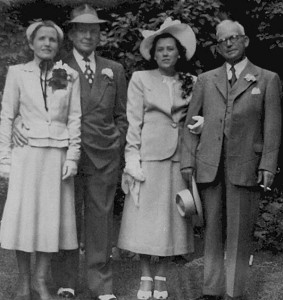 Bertha married Arthur Hallgren on May 12, 1948 in Boulder Colorado. But, the time for them to have children had come and gone. Then, Arthur Hallgren passed away just three years and seven months after they were married. It was a devastating blow, and Bertha would not marry again, but rather would spend her time with her family, especially her niece, Paula and her children; and writing her wonderful journal so that her legacy could be passed on to so many other family members. I don’t know when Elsa’s husband, Frank passed, but Bertha passed away December 22, 1984 and Elsa passed away November 23, 1992. They may not have had children, but their lives were very important to the family members whose lives were greatly enriched by the dedication of these two amazing women.
Bertha married Arthur Hallgren on May 12, 1948 in Boulder Colorado. But, the time for them to have children had come and gone. Then, Arthur Hallgren passed away just three years and seven months after they were married. It was a devastating blow, and Bertha would not marry again, but rather would spend her time with her family, especially her niece, Paula and her children; and writing her wonderful journal so that her legacy could be passed on to so many other family members. I don’t know when Elsa’s husband, Frank passed, but Bertha passed away December 22, 1984 and Elsa passed away November 23, 1992. They may not have had children, but their lives were very important to the family members whose lives were greatly enriched by the dedication of these two amazing women.
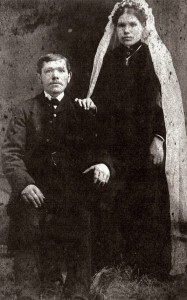 My great grandfather, Carl Ludwig Theodor Schumacher, was born in the Province of Pommern in northern Germany, on May 23, 1859. He was one of the twelve children of Johann Freidrich Theodor Schumacher and Maria Maehling. He came to America after taking care of a wealthy landowners driving horses for several years beginning when he was 15. It was a job he loved very much, because he really loved horses. By the spring of 1884, he had saved enough money to pay for passage to America, with the plan of moving to Minnesota, where he had cousins.
My great grandfather, Carl Ludwig Theodor Schumacher, was born in the Province of Pommern in northern Germany, on May 23, 1859. He was one of the twelve children of Johann Freidrich Theodor Schumacher and Maria Maehling. He came to America after taking care of a wealthy landowners driving horses for several years beginning when he was 15. It was a job he loved very much, because he really loved horses. By the spring of 1884, he had saved enough money to pay for passage to America, with the plan of moving to Minnesota, where he had cousins.
Henriette Albertine Johanne Hensel was born in Schönwalde in the southern part of the Province of Pommern, in northern Germany on December 11, 1860. At the time she lived there all this land was part of the Prussian Empire. She was the second youngest of nine children of Carl Hensel and Henriette Tonn. Her father died before her younger brother was born in 1865. About that time, Henriette was sent to her older sister’s home to tend the 5 cows and 52 sheep she had. As time went on, she grew up and had a boyfriend…she was happy and content. Then everything changed for her. Her sister’s husband wanted to immigrate to America, and since Henriette was not married, her mother wanted her to go with them to help her with her two small daughters. She didn’t want to go, but she did go. The voyage was long, and the family spent much of it quite ill. Her sister’s husband never really recuperated fully, and he died just a few years later.
One Sunday a friend of Carl Schumacher’s asked him to sponsor at a baptism in his stead. At the baptism celebration, Carl met the mother of the baby, and her sister Henriette Hensel, who had both just recently come to America from Germany. For Carl, it was love at first sight, and he married the young lady just a year later in Belchester, Minnesota on November 12, 1886. Their marriage was blessed with seven children, Anna Louise (who became my grandmother), Albert August, Maria (who died at just three years of age), Mina Albertine, Frederick Carl, Bertha Emilie, and Elsa Ernestine.
About a year after Elsa was born, the family moved to a farm 12 miles from Lisbon, North Dakota. It was so different from Minnesota, and Albert, who was 15 at the time, fell in love with the wild country. In Minnesota he fished, but there was not much to hunt. Here there was lots to hunt, and guns quickly became Albert’s lifelong hobby. It was here, in 1910, that the family purchased their first surrey. It was a surrey with a fringed top. Anna married my grandfather, Allen Luther Spencer, then Albert married Christine Ida Froemke, and Mina was away at college in Fargo, finishing her high school. The neighbors started getting the new Model T car, and Albert had to have one, but Carl loved his horses, so he kept his surrey. Albert spent all of his spare time studying mechanics. Mina hated the farm, so Henriette wanted to make sure that her daughter received an education. In 1917, Henriette and Fred were both in bed with arthritis, but Henriette didn’t want Bertha to miss her senior year of high school, so she left her bed to care for Fred. After a few family meetings, they decided to leave Fred, who was feeling better now, to run the farm and the rest of the family moved to Fargo, North Dakota, where Carl and Henriette would spend the rest of their lives. Bertha graduated from Secretarial School and Elsa from high school. Mina married John Clark 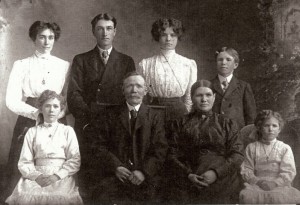 Spare. Bertha married Arthur C Hallgren and Elsa married Frank Lawrence. Bertha and Elsa would not have children of their own, but would “adopt” their niece, Pauline Spare Holmberg’s children, Lisa, John, Kristen, and Julie. Between the four remaining children, Carl and Henriette would receive twenty one grandchildren, and a growing number of great grandchildren, great great grandchildren, and these days, great great great grandchildren. All this from a chance meeting when Carl stood in the stead of a sponsor who was unable to be there for a baptism…wow!!
Spare. Bertha married Arthur C Hallgren and Elsa married Frank Lawrence. Bertha and Elsa would not have children of their own, but would “adopt” their niece, Pauline Spare Holmberg’s children, Lisa, John, Kristen, and Julie. Between the four remaining children, Carl and Henriette would receive twenty one grandchildren, and a growing number of great grandchildren, great great grandchildren, and these days, great great great grandchildren. All this from a chance meeting when Carl stood in the stead of a sponsor who was unable to be there for a baptism…wow!!
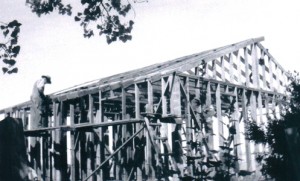 In days gone by, there just weren’t a lot of construction companies out west. People built their own houses. Of course, if a man has to build his own house, you can bet it took him a while to complete it. I don’t really think a lot of people built their house all by themselves however, because if they lived anywhere near the neighbors, people just seemed to show up to help. I’m not sure just how they knew that you were in the process of building a house or barn back in the old west, but somehow they did, and so they came to help. There was a camaraderie back then that doesn’t always exist today. Too many people don’t want to get involved, or they just decide that they are too busy with their own lives to go and spend time helping others.
In days gone by, there just weren’t a lot of construction companies out west. People built their own houses. Of course, if a man has to build his own house, you can bet it took him a while to complete it. I don’t really think a lot of people built their house all by themselves however, because if they lived anywhere near the neighbors, people just seemed to show up to help. I’m not sure just how they knew that you were in the process of building a house or barn back in the old west, but somehow they did, and so they came to help. There was a camaraderie back then that doesn’t always exist today. Too many people don’t want to get involved, or they just decide that they are too busy with their own lives to go and spend time helping others.
With droughts and thunderstorms causing buildings to burn, and no fire trucks or fire stations available, your neighbors always seemed to be the first responders to fire emergencies, or any other emergency, for that matter. Unfortunately with the neighbors living so far away from each other, the house or barn was usually gone before anyone could get there to help you put out the fire, and when all you are using is a bucket and a wet towel, it’s pretty much a lost cause before you even start. Nevertheless, they were right there to help you rebuild, so that you weren’t left without shelter for your family or your animals. That was just how neighbors were in the old west.
When you think about it, it was how they had to be in order to survive. With the Indian uprisings, and the old west outlaws, the pioneers had to stick together. There wasn’t a lot of lumber companies, and if they homesteaded a piece of land with an abundance of trees on it, they could cut down the trees to clear the field, and use the logs to build the cabin too. That was doing it the hard way, of course, so having friendly neighbors to help you get the job done before winter set in was essential. And of course, meeting the neighbors and offering to help them with their house or barn always meant a big potluck dinner and barn dance when the work was done. They didn’t have to get all dressed up and go somewhere fancy to have a great evening, they just got together with the neighbors and had a hoe down.
With time and modern equipment, came more construction companies, big cities, and less neighborly camaraderie. In fact, people these days are as likely not to know their neighbors as they are to know them. Sad when you think about it. We don’t live in such a big 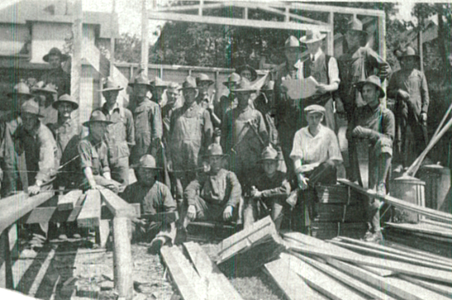 city, that all of that has gone away. Our neighbor, Bill has a snow blower, and if it snows while we are at work, he is out there with that snow blower doing the sidewalks and driveways for about half the block. It’s very nice for Bob to be able to come home and not have to get out the and shovel every thing off. Of course, Bill knows that anytime he needs help, all he has to do is ask, because we will be there with bells on, and likely as not, Bob is out there doing something for Bill before he has a chance to ask. I love our neighbors, and after all, that is what being neighborly is all about.
city, that all of that has gone away. Our neighbor, Bill has a snow blower, and if it snows while we are at work, he is out there with that snow blower doing the sidewalks and driveways for about half the block. It’s very nice for Bob to be able to come home and not have to get out the and shovel every thing off. Of course, Bill knows that anytime he needs help, all he has to do is ask, because we will be there with bells on, and likely as not, Bob is out there doing something for Bill before he has a chance to ask. I love our neighbors, and after all, that is what being neighborly is all about.
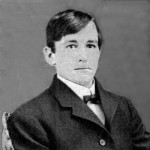 How could a simple trip become such an awful nightmare? Walter Alden Davis was just going on a short trip with his friend, Fred Willar to celebrate Independence Day in 1906. It was going to be a great day, and it was a great day, until the day ended. Walter and Fred rode their horses to Hay Springs, Nebraska from their homes in Rushville, Nebraska. The distance was about 12 miles. Then they took the train into Chadron, Nebraska for the festivities and to visit some friends.
How could a simple trip become such an awful nightmare? Walter Alden Davis was just going on a short trip with his friend, Fred Willar to celebrate Independence Day in 1906. It was going to be a great day, and it was a great day, until the day ended. Walter and Fred rode their horses to Hay Springs, Nebraska from their homes in Rushville, Nebraska. The distance was about 12 miles. Then they took the train into Chadron, Nebraska for the festivities and to visit some friends.
Walter had seen a coyote earlier in the day, so he borrowed a revolver from a friend in case he saw another one. After a great day with friends and the Independence Day festivities, Walter and Fred took the midnight train back to Hay Springs, where they got a room at the hotel. Unfortunately, Walter had forgotten about the revolver, which was in his pocket, and when he dropped his pants on the floor, the revolver fired. The bullet went up through Walter’s hip and into his abdomen. He died a few hours later, on July 5, 1906. He was only 21 years old. The accident happened just 11 days before his 22nd birthday.
When I think of how Great Aunt Tessie and Great Uncle William must have felt when they heard the news, it makes me want to cry. They had already lost a son, Edward Allen Davis in 1893, at just 3 months of age, and a set of twins, a boy and a girl, in 1898, who died at birth, and now this. We often wonder just how much tragedy we can take, and in the 1800’s and early 1900’s, medicine was just not as good. Doctors could only do so much for poor Walter. Maybe if this had happened in this day and age, he might have been saved, but maybe not too. There is just no way to say with any certainty.
I’m sure the family wondered how they could go on without this handsome son who had been such a big help on the ranch. Nevertheless, the Davis family were a strong bunch, and they would not only survive this loss, but the loss of two more children. One before William passed away in 1925, and another the year after his death. I have to think that Great Aunt Tessie was a one of the true pioneer women of the west, because those women had to be strong enough to live through disaster and tragedy, and still come out of it unbroken. While nothing would replace their handsome boy, they would move forward, and they would survive.
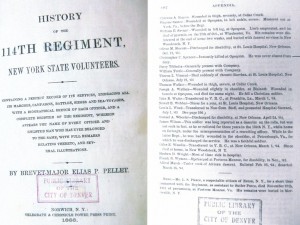 I have never had to experience the horror of a knock at the door, by a telegraph or phone call or military personnel, bring the most awful new a parent could possibly receive…their child has been killed in action. I can only imagine how the family felt after hearing that news…the feeling of having your heart literally ripped out of your chest…knowing that nothing in your life will ever be the same. The parents will now have to bury their child, and no parent should ever have to do that…for any reason. I have to think that sleep will be very hard to come by after that, because every time they close their eyes they will see their child in the middle of a battle and that moment when their child will lose that battle. I don’t think I would want to close my eyes.
I have never had to experience the horror of a knock at the door, by a telegraph or phone call or military personnel, bring the most awful new a parent could possibly receive…their child has been killed in action. I can only imagine how the family felt after hearing that news…the feeling of having your heart literally ripped out of your chest…knowing that nothing in your life will ever be the same. The parents will now have to bury their child, and no parent should ever have to do that…for any reason. I have to think that sleep will be very hard to come by after that, because every time they close their eyes they will see their child in the middle of a battle and that moment when their child will lose that battle. I don’t think I would want to close my eyes.
I don’t think there have been a lot of my family members that were killed in action, but I can’t say that for sure. The two I know of were Christopher Columbus Spencer and William Henry Davis. I don’t know much about Christopher’s parents, Christopher and Anna Rice Spencer, because they lived in the 1800’s, but I know they both died within 5 years of their son’s death in the Battle of Opequon, also called the Third Battle of Winchester. It was a battle in the Civil War fought in Winchester, Virginia. This was a fierce and bloody battle, with 5,020 Union casualties and 3,610 Confederate casualties. I suppose that one might thing the battle was won by the Confederate side, but as there were 39,240 Union soldiers and 15,200 Confederate soldiers, the losses were really heavier on the Confederate side. Christopher was a member of the 114 Regiment New York State Volunteers. The Civil War was such a hard war…but then they all are. Still, when you are fighting your own countrymen, and brother is fighting against brother, it is even harder to bear. Christopher was not the only son of Christopher and Anna, of course. Theirs was a large family with 10 children, one of whom was my Great Great Grandfather, Allen Spencer. While there were 5 daughters and 5 sons, at least 3 of them had already passed away, and now this horrific loss would also strike this family. I have to wonder if these losses became too much for these parents to bear, and Anna would pass away in 1868 and Christopher in 1869. By the time this couple passed away, at least 2 more of their children would be gone. The loss of your children for any reason is horrible, but to lose them to war…so far away, must have been awful.
William Henry Davis was killed in action on the West Bank of the Meuse in France. There were several battles going on at that time, so I’m not sure which battle Henry, as he was called, was killed in. Nevertheless, his parents had to live with the reality that their son was killed in a battle far from home. I think that sending your child over seas to fight in a war would be one of the hardest things a parent could do. Knowing that you are sending your child into battle, and you are so far away in the event of something happening. From a mother’s perspective, that would be a horribly helpless feeling. Casualty notifications during an active battle in World 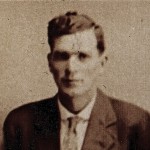 War I, would most likely have been very slow in coming. The death could come weeks before the notification. Just knowing that your child has been dead for that long and you are just finding out, would be enough to tear your heart out. That was quite likely the way things were for William and Theresa Spencer Davis. The news likely came by way of a letter. My guess is that even though Henry’s commanding officer tried to be kind, his words felt like a knife in their chest. It was likely very hard to breathe. Life would never be the same for them either, because their son had been killed in action. In the end, William and Theresa would also bury several other children before their own deaths. I can only imagine how awful that must have been.
War I, would most likely have been very slow in coming. The death could come weeks before the notification. Just knowing that your child has been dead for that long and you are just finding out, would be enough to tear your heart out. That was quite likely the way things were for William and Theresa Spencer Davis. The news likely came by way of a letter. My guess is that even though Henry’s commanding officer tried to be kind, his words felt like a knife in their chest. It was likely very hard to breathe. Life would never be the same for them either, because their son had been killed in action. In the end, William and Theresa would also bury several other children before their own deaths. I can only imagine how awful that must have been.
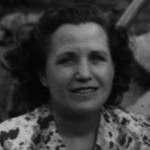 What is it about reading a story that intrigues us? It is the content, of course, but there is something more. Sometimes, we just want to take a few minutes outside ourselves…to lose ourselves in another man’s mind. It was a quote by Charles Lamb in 1890, who wrote “I love losing myself in other men’s minds” that came to me in a cover letter for my Great Aunt Bertha Schumacher Hallgren’s journal. It was written to some of her grand nieces and grand nephew, her sister, Mina’s grandchildren, when she gave them a copy of her journal…the writings of her thoughts. And when I read the letter, I was intrigued. I was very curious about her mind. I never had the opportunity to know Great Aunt Bertha, who went by Bertie, and I find that very sad. It is my opinion that she was an amazing woman. In her letter, she points out that all too often, historical writings take in simply the events as they occurred, but leave out the human side of things…the thoughts, emotions, feelings, and the impact the events had on the lives of the people who lived them. She also points out that the family stories told by the very of people who lived those stories will impact the lives of their descendants for years to come. She looks ahead to the 23rd century, and wonders what they would think of the events that shaped the lives of their ancient ancestors. After reading her letter, I realized that my stories had barely scratched the surface of the events I was writing about.
What is it about reading a story that intrigues us? It is the content, of course, but there is something more. Sometimes, we just want to take a few minutes outside ourselves…to lose ourselves in another man’s mind. It was a quote by Charles Lamb in 1890, who wrote “I love losing myself in other men’s minds” that came to me in a cover letter for my Great Aunt Bertha Schumacher Hallgren’s journal. It was written to some of her grand nieces and grand nephew, her sister, Mina’s grandchildren, when she gave them a copy of her journal…the writings of her thoughts. And when I read the letter, I was intrigued. I was very curious about her mind. I never had the opportunity to know Great Aunt Bertha, who went by Bertie, and I find that very sad. It is my opinion that she was an amazing woman. In her letter, she points out that all too often, historical writings take in simply the events as they occurred, but leave out the human side of things…the thoughts, emotions, feelings, and the impact the events had on the lives of the people who lived them. She also points out that the family stories told by the very of people who lived those stories will impact the lives of their descendants for years to come. She looks ahead to the 23rd century, and wonders what they would think of the events that shaped the lives of their ancient ancestors. After reading her letter, I realized that my stories had barely scratched the surface of the events I was writing about.
I began to think of the day to day moments of our lives, and how much of the future history is being lost, because we have not recorded the thoughts and feelings we experienced at the time that we experienced them. Great Aunt Bertie suggested that if a person was interested in writing about family history, they should question their parents about the lives of their parents and grandparents. I immediately felt a sense of loss, because my dad and my father-in-law are both gone, and the opportunity to talk with them is gone too. I also felt a sense of loss, because my mother-in-law has Alzheimer’s Disease, and doesn’t always remember the events from her past anymore. I did feel an urging to sit down with my mom to see what things she could tell me, and also with my aunts, because I still have a chance to get their perspective on things. It occurred to me that while the desire is there, time will be the biggest problem, because of work and other obligations. Still, I want to take the opportunity while I can do so, and I know that I will learn many interesting things about my family.
I look forward to reading more of Great Aunt Bertie’s journal. She was an amazing individual, and she had the presence of mind to think in the future. She knew that the past has a very important place in the future, and that the future generations will never know the great things their ancestors accomplished, unless someone tells them about it. They will never know how their ancestors felt when they made the decision to immigrate to a new country, with their future very uncertain, but knowing that they had no future where they were then. And yet, she saw the importance of the here and now too…the everyday changes in the lives of family members around us…the accomplishments, hopes, and dreams for their future. She knew the importance of documenting the everyday moments of a life. Thank you for your wisdom, Great Aunt Bertie, and thank you Julie Holmberg Carlberg for blessing me and the rest of the family with this wonderful journal and the pictures you sent too. Great Aunt Bertie’s legacy will always be our priceless treasure.
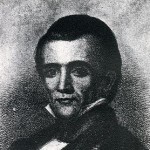 They say that children learn what they live, and we all know that is true in many ways. What I find interesting is that when there is a family that has political ties, often they extend way back. Of course, with new people being introduced into the family with marriages and births, things can change, and move away from the ties that had been there before, but often they continue on for generations. That is the case in the Knox family, which is one of the families my husband, Bob comes from. His mom and grandparents were very much not political, but in generations past, there were several presidents in his family, with the one most well known to us being James Knox Polk, who is Bob’s 2nd cousin 5 times removed. I know that is pretty distant, but then, he lived from 1795 to 1849, so it would have to be.
They say that children learn what they live, and we all know that is true in many ways. What I find interesting is that when there is a family that has political ties, often they extend way back. Of course, with new people being introduced into the family with marriages and births, things can change, and move away from the ties that had been there before, but often they continue on for generations. That is the case in the Knox family, which is one of the families my husband, Bob comes from. His mom and grandparents were very much not political, but in generations past, there were several presidents in his family, with the one most well known to us being James Knox Polk, who is Bob’s 2nd cousin 5 times removed. I know that is pretty distant, but then, he lived from 1795 to 1849, so it would have to be.
There are also, the presidents who are a little more distant, but still come from the Knox family. Presidents like Andrew Jackson, George HW Bush, and George W Bush. The 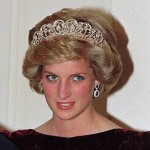 connections are a little harder to find, because they involve the in-laws and their marriages, but they are nevertheless a familial connection. I suppose that if we go far enough back, we will find a president or some royalty in pretty much every family. It stands to reason when you consider the various family connections. As marriages and births occur, and family connections are formed, it becomes more and more a real possibility. For some of us, like Bob’s family’s political ties, and my family’s tie to Princess Diana and the British Royal Family, the connections are well known to us from the time we are children. For others, those connections are not discovered until much later on, and some never know that a connection exists. To me that is sad, because I have thoroughly enjoyed finding out who I am related to…and I have been very surprised too. Both Bob and I are related to Princess Diana and her children, so the birth of Prince George was particularly exciting to me. Even though the royal family is not exactly a political tie in the normal sense of the word, they are still the ruling family in England, and so political in that way.
connections are a little harder to find, because they involve the in-laws and their marriages, but they are nevertheless a familial connection. I suppose that if we go far enough back, we will find a president or some royalty in pretty much every family. It stands to reason when you consider the various family connections. As marriages and births occur, and family connections are formed, it becomes more and more a real possibility. For some of us, like Bob’s family’s political ties, and my family’s tie to Princess Diana and the British Royal Family, the connections are well known to us from the time we are children. For others, those connections are not discovered until much later on, and some never know that a connection exists. To me that is sad, because I have thoroughly enjoyed finding out who I am related to…and I have been very surprised too. Both Bob and I are related to Princess Diana and her children, so the birth of Prince George was particularly exciting to me. Even though the royal family is not exactly a political tie in the normal sense of the word, they are still the ruling family in England, and so political in that way.
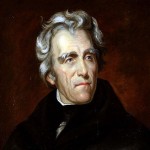
I suppose that things can come full circle too, from a very political family to one that is not so political, and back to very political again. And in that way, I would certainly be one of the latter…and possibly the most politically inclined member of the current family…at least for the Knox/Schulenberg side. I doubt if anyone would dispute that. I have no intentions of running for political office. I might be considered more of an activist, in that I have very specific ideas of right and wrong, and I certainly don’t mind voicing my opinions on matters, as my friends can fully attest. What can I say, except that it takes all kinds of people to make this world what it is.
 Every so often in the royal family, someone enters the royal scene, who single handedly manages to breathe new life into an otherwise stale lineage that has been filled with people who have been in the family so long that they possess little or no…well, zing!! Kate Middleton is this generation’s breath of fresh air. Don’t get me wrong, because I very much like Prince William and Prince Harry, and I feel that both of them have gone a long way toward making the British Royal Family popular and accessible to a large degree, but they were, nevertheless caught up in the humdrum, and even a little bit tired, feel that the Royal Family has exhibited in recent years. Kate on the other hand, has a smile that lights up the room when she appears. She is vibrant and full of life, and she is not shy or afraid of the camera, so she has captured our imaginations and our hearts for a while now. From the time they started dating, we hoped that she would be the one Prince William would choose, because when they were together, he changed into a vibrant, smiling
Every so often in the royal family, someone enters the royal scene, who single handedly manages to breathe new life into an otherwise stale lineage that has been filled with people who have been in the family so long that they possess little or no…well, zing!! Kate Middleton is this generation’s breath of fresh air. Don’t get me wrong, because I very much like Prince William and Prince Harry, and I feel that both of them have gone a long way toward making the British Royal Family popular and accessible to a large degree, but they were, nevertheless caught up in the humdrum, and even a little bit tired, feel that the Royal Family has exhibited in recent years. Kate on the other hand, has a smile that lights up the room when she appears. She is vibrant and full of life, and she is not shy or afraid of the camera, so she has captured our imaginations and our hearts for a while now. From the time they started dating, we hoped that she would be the one Prince William would choose, because when they were together, he changed into a vibrant, smiling  man too. She had that affect on him, and I’m sure that feeling of being alive again was the main reason Prince William could look no further for his bride. Yes, he was concerned for her emotional wellbeing, after the terrible time his mother had as a member of the Royal family, and so he gave her some space, but they could not stay apart, and the British Monarchy is far better because of their marriage.
man too. She had that affect on him, and I’m sure that feeling of being alive again was the main reason Prince William could look no further for his bride. Yes, he was concerned for her emotional wellbeing, after the terrible time his mother had as a member of the Royal family, and so he gave her some space, but they could not stay apart, and the British Monarchy is far better because of their marriage.
Now that their little family has grown with the addition of precious little Prince George, there is even more life being breathed into the family. While we haven’t been treated to a lot of pictures of Prince George yet, it is hard to get that cute little face out of your memory. He is such a handsome little man, and I am so happy for the royal couple. While I don’t expect it to be very long before we find out that another royal baby is on the way, for now, we will just have to wait patiently for more views of the current royal little one.
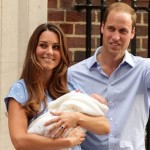
I think the main reason Princess Kate was able to bring about such a royal transformation is that she was not raised in all the stuffiness of the British Hierarchy, but rather was a commoner, and so the best choice to bring a much needed change. She may be a commoner, but it is in standing only, because she has style and flair, beauty and brains, and definitely grace. She is in every way…a princess. I think the Queen would do very well to pass up Charles in favor of Prince William and his bride, Kate for King and Queen of England…and that is my opinion on the matter. Today is my cousin, Princess Kate’s birthday!! Happy birthday Princess Kate!! Have a wonderful day!! We love you!!

